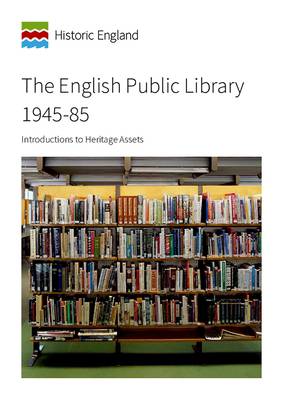
- Retrait gratuit dans votre magasin Club
- 7.000.000 titres dans notre catalogue
- Payer en toute sécurité
- Toujours un magasin près de chez vous
- Retrait gratuit dans votre magasin Club
- 7.000.0000 titres dans notre catalogue
- Payer en toute sécurité
- Toujours un magasin près de chez vous
13,95 €
+ 27 points
Description
This guide looks at the development of public libraries in England after the Second World War. It places their architecture - external and also internal - within a period of considerable political, social and economic change.
Post-war aspirations set new challenges for the country's library services, which had already begun to expand considerably in the 1930s. Outwardly, new library buildings continued - financial constraints permitting - to reflect civic pride and aspirations, while inside new layouts, fixtures and fittings provided for an increasingly middle-class readership. Children's services were ever-more important, while larger libraries offered facilities such as local studies and record libraries, and later computers.Spécifications
Parties prenantes
- Auteur(s) :
- Editeur:
Contenu
- Nombre de pages :
- 20
- Langue:
- Anglais
- Collection :
Caractéristiques
- EAN:
- 9781848024557
- Date de parution :
- 29-07-16
- Format:
- Livre broché
- Format numérique:
- Trade paperback (VS)
- Dimensions :
- 210 mm x 297 mm

Les avis
Nous publions uniquement les avis qui respectent les conditions requises. Consultez nos conditions pour les avis.






